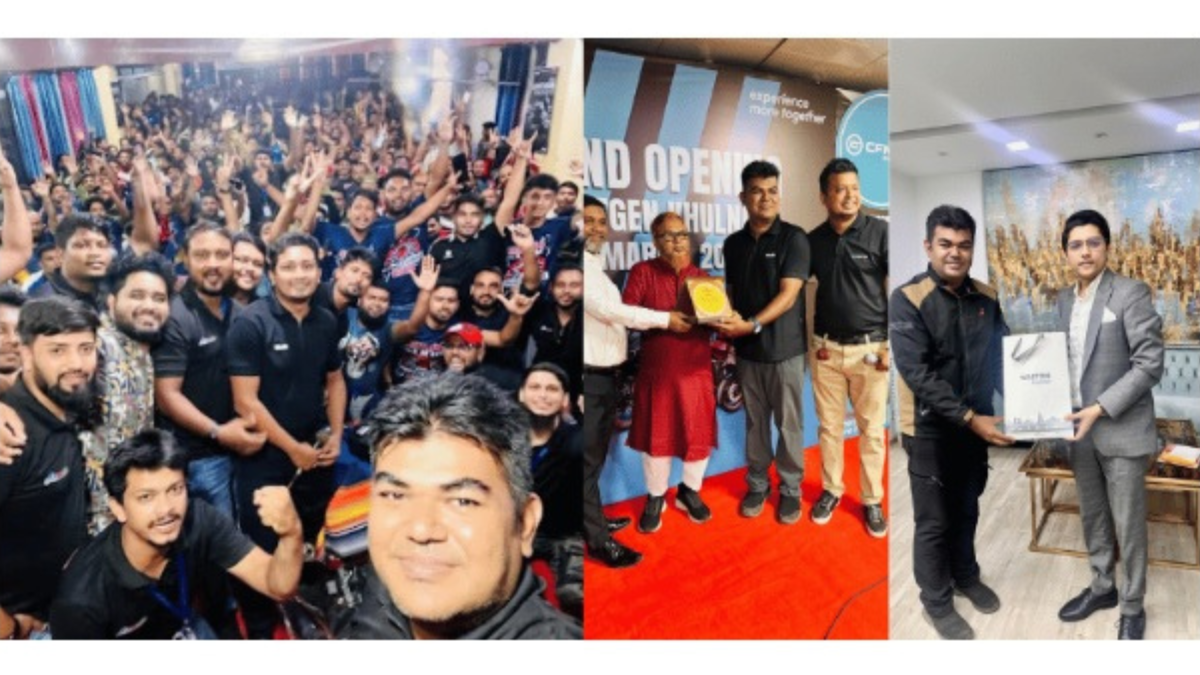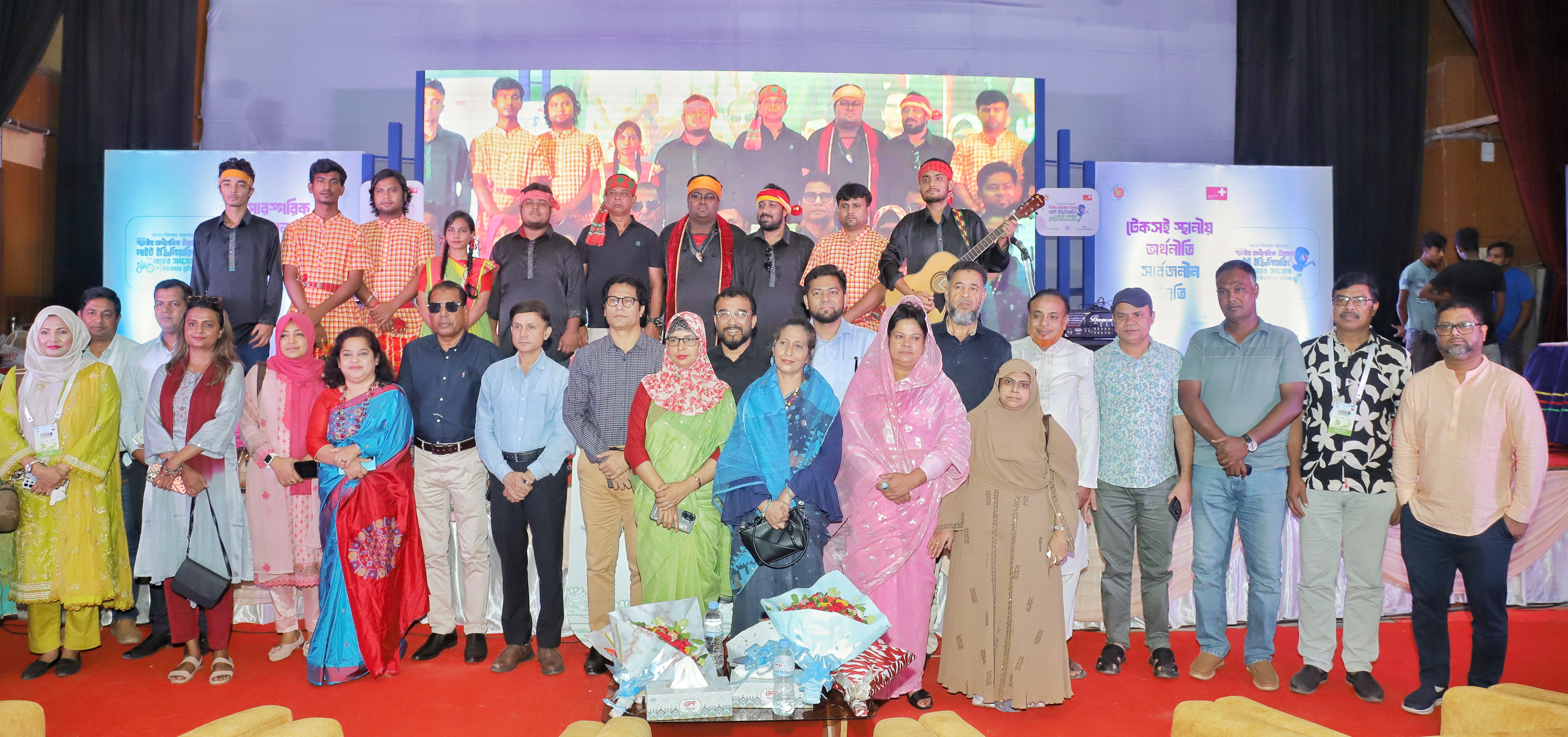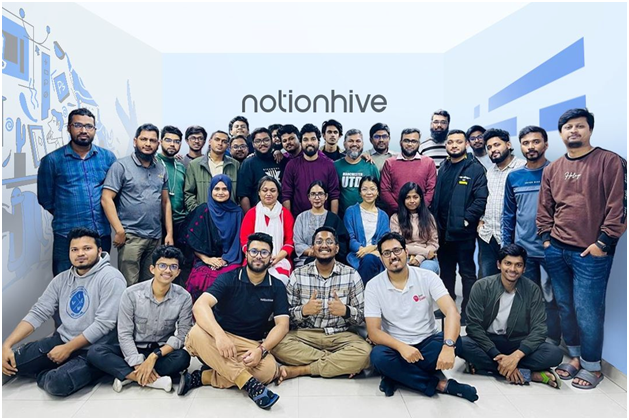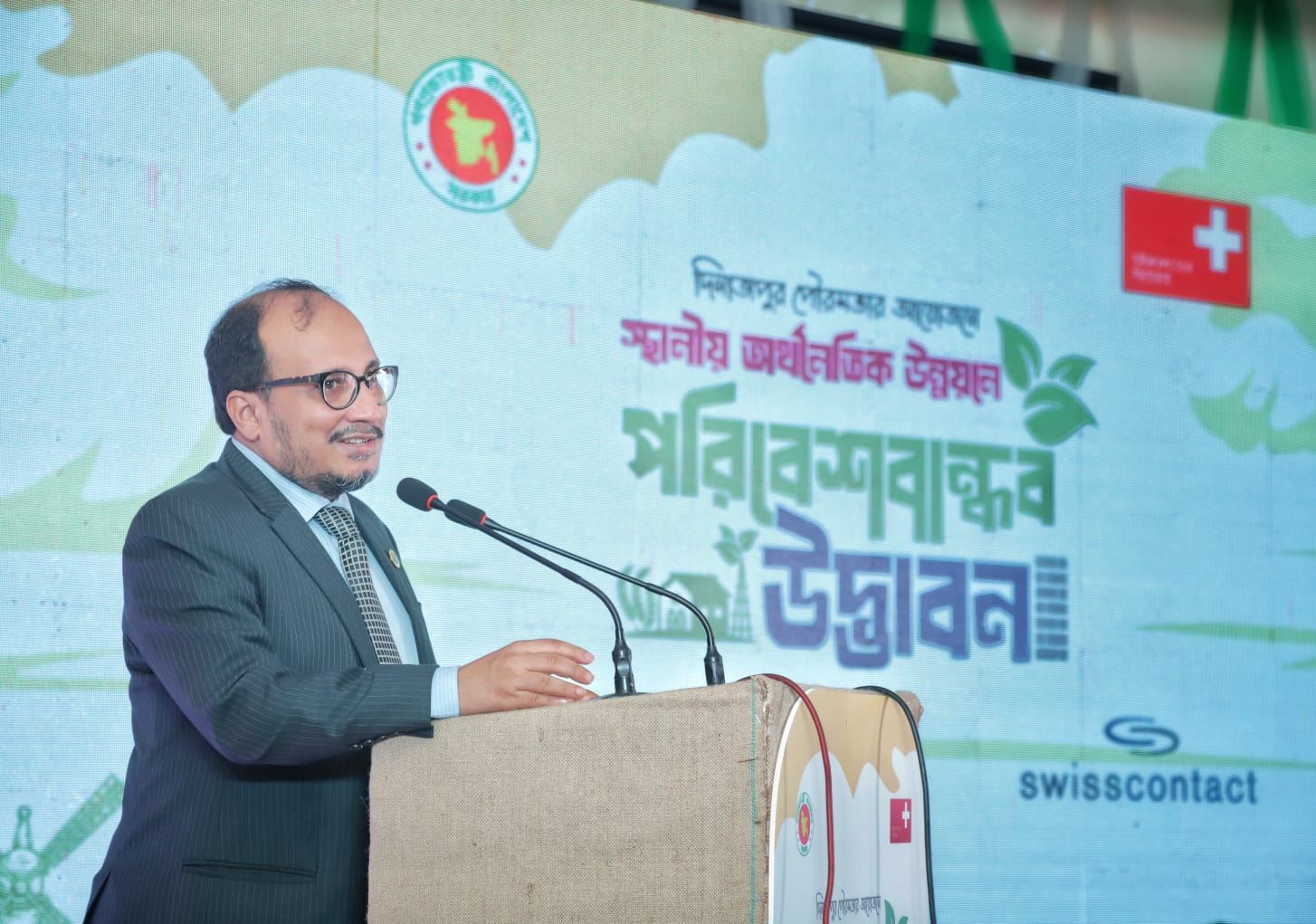
Valiant Freedom Fighter Quazi Sazzad Ali Zahir, a retired lieutenant colonel, honored with the Padma Shri in India, and the Bir Protik and the Swadhinata Padak in Bangladesh, launched the book as chief guest at the function at Six Season Hotel in the capital. COURTESY
A memoir of eminent educationist Prof Muslehuddin Ahmad, founder vice chancellor of North South University, launched on Saturday. In the book titled, "Bridge over Troubled Waters" Seema Ahmad highlighted the legacy of a pioneer of higher education in Bangladesh through the eyes of a daughter.
Valiant Freedom Fighter Quazi Sazzad Ali Zahir, a retired lieutenant colonel, honored with the Padma Shri in India, and the Bir Protik and the Swadhinata Padak in Bangladesh, launched the book as chief guest at the function at Six Season Hotel in the capital.
Dr. Gowher Rizvi, Prime Minister's Adviser for International Affairs, was virtually present as a special guest. Renowned journalist Syed Badrul Ahsan was also present through video link. Dr. Gowher Rizvi commented, “What an extraordinary achievement and labor of love. It is more than a biography – it is a work of history with great literary merit.”
Columnist Dr Milton Biswas, world renowned economist Dr Salim Rashid, business professional Syed Akhtar Hassan Uddin, and APPL publisher Ahmed Sarwaruddawla were present in-person at the function. Dr. Salim Rashid said, “Seema has performed the indispensable task of presenting her father’s single-minded resolve to set up a private university, the first such in Bangladesh.”
In the book, author Seema went down the memory lane to unearth an untold story of Prof Muslehuddin, who is considered to be the "Father of the private university movement in Bangladesh"
"Inspired by Bangabandhu during the Liberation War, Muslehuddin Ahmad defected from Pakistan and opened the embassy of Bangladesh at is home in Paris at 125 Ave de Versailles" said Seema Ahmad.
According to the author, this book takes the reader through Muslehuddin Ahmad's early years, his career in the diplomatic service, his involvement in the 1971 Liberation War, and his crowning achievement of establishing North South University.
In Bridge Over Troubled Waters, daughter Seema Ahmad weaves her own recollections with those of friends and family to present a unique account of the history of North South University.
At the event, Seema Ahmad said, “Education is the backbone of a country. When my father started the first private university, he had the vision to deliver high quality education. The private university journey began in 1992, as one small university with 137 students, 10 faculty members. According to University Grants Commission of Bangladesh, today there are 97 universities with almost 328,689 students and 16,277 faculty members. Add to that, 50 public universities today, with 43 lac 62,187 students and 149, 846 faculty members. With 147 universities public and private universities, we certainly have a strong backbone for our economy.
The sheer number of students and faculty members in the private universities signal a significant reversal of the brain drain since 1993.
But it’s not just in the sheer number of private universities that we see the improvement in higher education. The competition between private and public university education, has also driven up the quality of public higher education. When there were hartals and unending university closures, my father began to hold classes during the weekends. Well guess what! The public universities also began to follow suit. The session jots that plagued higher education, was solved. A 3 year degree no longer took 6 years to complete. Soon, everyone graduated on time.
But it didn’t stop there. Business degrees, BBA, was never offered as a bachelor degree in universities. But after NSU offered it, public universities began to offer it. For instance, the University of Dhaka University today offers BBA and electrical engineering. NSU created a healthy competition between private and public higher education.
But the groundwork of establishing the foundations for high quality education came early on through my father’s tireless efforts of collaborating with top tier universities in the US. My father worked with Dr. Salim Rashid to get NSU’s curriculum reviewed and approved by the University of Illinois Urbana Champaigne. He worked with his eldest son Dr. Junaid Ahmad to get the MBA curriculum informally reviewed by Wharton Business School. He worked with his son-in-law Dr. Sayeed Ahmed to get NSU’s MBA curriculum officially reviewed and recognized by UC Berkeley with the seal of authority of the Chancellor of the UC system. This collaboration also paved the pathway for NSU students to apply and get accepted more readily to the HAAS School of Business at UC Berkeley and other most competitive schools.
Just as private universities have grown from 1 to 97 in the last 30 years, public universities have grown from 9 to 50 in the same last 30 years. Our Honorable Prime Minister Sheikh Hasina has a vision to increase the number of public universities and take higher education to the doorsteps of people, to every district in Bangladesh. However, if the government also pays attention to the quality of higher education and not just the sheer quantity, this vision is bound to strengthen the backbone of our nation.”
The event was organized by the author and notable alumni from NSU, namely Shayokh Ahmad (CEO, Xurtials), Md. Miraj Rahman (Director, Rupsha Tyres and Chemicals Limited), Ziauddin Adil (Consulate of the Democratic Republic of Congo and CEO of the Top of Mind), Muntasir Rashid (Director, High Voltage Limited), Aminul Ehsan (Senior Director, Democracy International), and Shams Zaman (Director, Citibank).
The author Seema is an electoral consultant, political activist, & community organizer who worked for Obama’s and Biden’s presidential campaigns and was a Michigan delegate to the 2012 Democratic National Convention. She also worked for local and federal government in the US. She is currently the founder President of PARIS (Political Activism, Relief, and Institutional Startups) through which she leads the campaigns to Stop Child Hunger and Stop Chemically Tainted Foods in Bangladesh. (www.parisforjustice.org).
She graduated in Economics from the University of Dhaka and in Business and Government Policy from Harvard University.












0 Comments